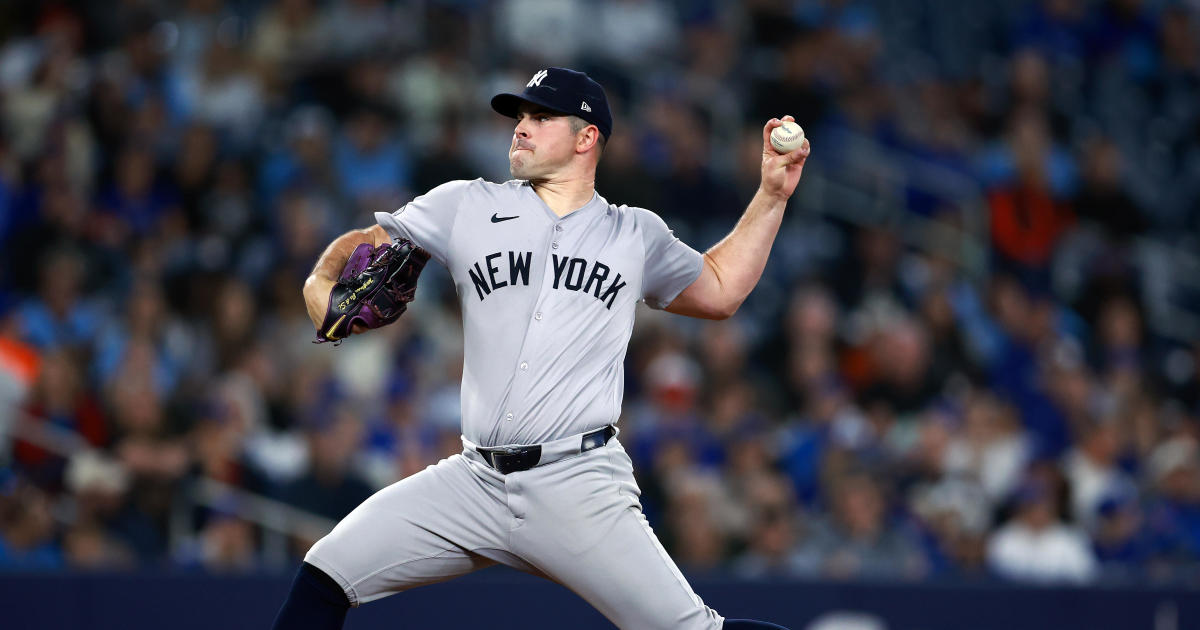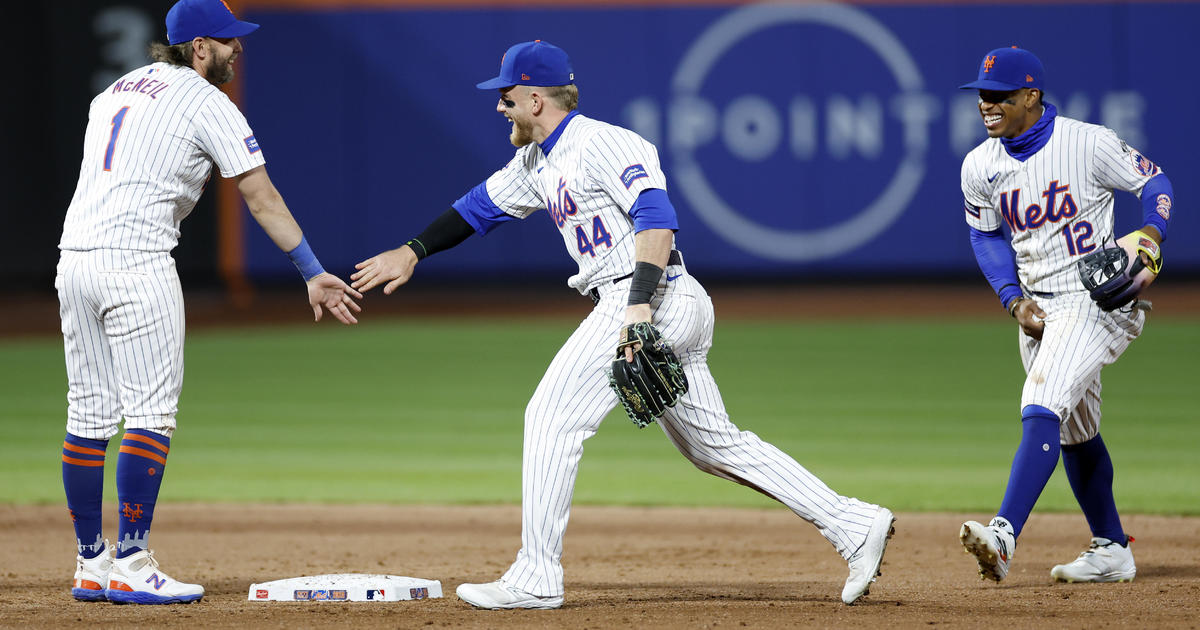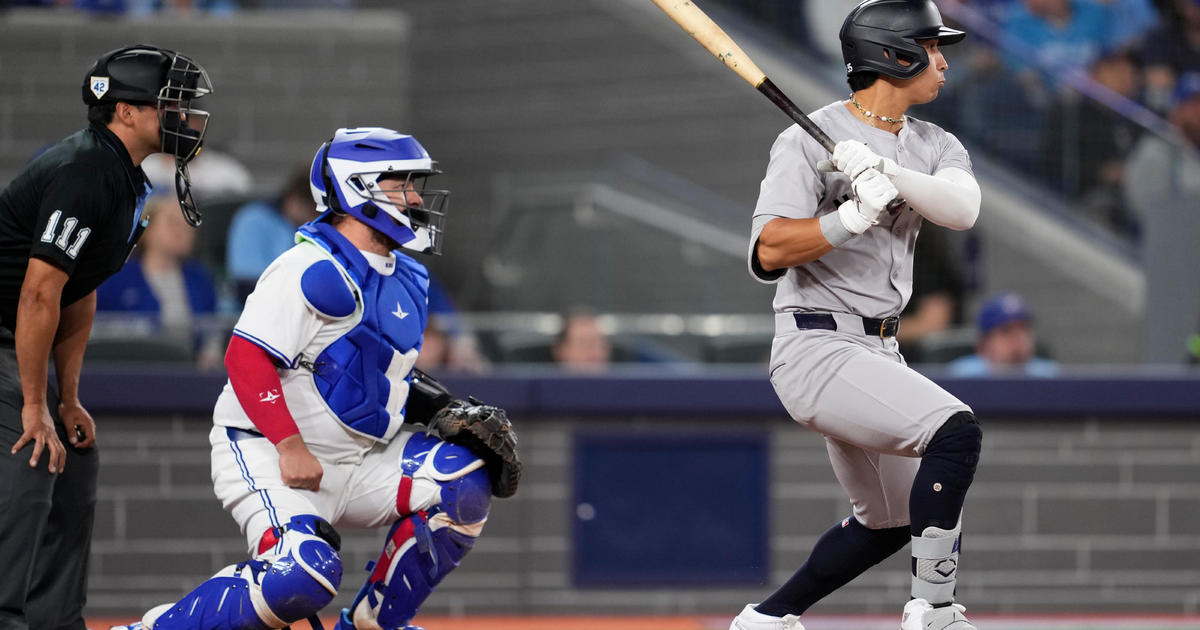Keidel: Muhammad Ali Was A Champion In Every Sense Of The Word
By Jason Keidel
» More Columns
The Greatest is gone.
And while it's a writer's job to apply words to a man, his time and his talent, Muhammad Ali, who died Friday, renders any writer with a sense of impotence, unable to frame a man who may not have been God, but was perhaps God's greatest creation.
So many millions of young men born in the 1960s, all across the melting pot, met at the altar of Muhammad Ali, who gave us grace, hope and an innate sense that as long as he was alive, there was a beacon, a template, a blueprint to brilliance. He was a walking monument to masculinity and nobility, an impossible hybrid of charisma, character and courage.
PHOTOS: Remembering Muhammad Ali | Mourners Pay Tribute To Muhammad Ali
Unless you were alive and lucid during Ali's reign, you can't possibly know what he meant to teens who happily thrived vicariously through his lyrical romp across our world and our hearts. Now his grave will be wet with the tears of a grieving nation, continent and species.
At his peak, Ali was the most recognizable living human on the planet. The only name more recognizable was Jesus Christ.
When you reach that orbit, no obit can do you justice.
But we must try.
When boxing was still America's greatest sport, Ali was its greatest boxer.
You could easily argue that Ali was the greatest athlete of the 20th century, and the most important. He surely was the first crossover star whose light flashed down every dark alley around the world.
Before boxing sank into a provincial sport of pay-per-view divas fighting in glittering, casino enclaves, it was a true sport of kings. And Ali wore its crown. Yet Ali had so many dimensions, it was impossible to simply brand him a boxer.
MORE: 15,000 Bees Show Up In Tree Next To Ali Mural
Born Cassius Marcellus Clay on Jan. 17, 1942, Ali took an odd but truly American path to stardom, through the thorny portal of segregation, racism and the swamp of social maladies that defined the 1960s.
Like so many immortals, Ali landed on his craft by accident. At age 12, his bicycle was stolen. Determined to prevent another theft, he took up boxing, perhaps the most innocent preamble to greatness in history.
But none of it would have happened if not for his singular boxing brilliance. Before anyone can pivot into political or cultural causes, one must establish themselves in some traditional way. And Ali just happened to be blessed with the best body, hands and tongue of his time.
As if being big, black and wildly talented weren't enough to spike a few bigoted feathers, Ali pushed the establishment to its breaking point with his poetry, hubris and fists. Ali entered the consciousness at the perfect time, just as our nation was morphing into something new and facing its sordid history. While many brave men and women contributed to the civil rights movement, Ali threw our past in our face, holding up a mirror to our transgressions.
He was also absurdly handsome. Hell, he was beautiful. With Hollywood cheekbones and cinematic toughness, Ali was the envy of the new generation, and a nightmare to those with old-world sensibilities.
Ali was not a great thinker, like Martin Luther King Jr. He did not have the vocabulary or verbal alacrity of Malcolm X. He did not break any color barriers, like Jackie Robinson. He was not universally adored, like Joe Louis.
But Ali took a little from all of them, and became a cultural beacon, someone we could admire on endless levels. While Ali became a symbol of black power, his true genius was being able to make people of all colors and cultures feel like his friend.
Ali's personal and professional styles were a curious composite of wrestler Gorgeous George and perhaps the greatest pure pugilist in history, Sugar Ray Robinson. Eventually, Ali carved out his own brand of bravado and boxing, a perfect amalgam of performer and pugilist. Just as TV was lording over our living rooms, he had the perfect body, face and fortitude for mass consumption.
His brash brand of poetry earned him the handle "Louisville Lip." Not only was Ali able to recite a form of boxing sonnets, he was also able to predict the exact round he would deck his opponents.
The only muscle as fast as his hands was his tongue. Between his binary talent as a boxer and showman, Ali was often able to win a boxing match before it began with his caustic rhymes and innate confidence. Ali fought Sonny Liston when no one else would. Ali fought Joe Frazier three times when few would fight him once.
So much of what Ali did seemed counterintuitive, yet it was really avant garde. Indeed, It was not for Ali to catch up to us, but for us to catch up to him. It was the bones of bigotry, the southern sensibilities, the ghosts of our galling past, that kept us in the intellectual dark for so long. Ali, as much as anyone, helped us break through the membrane of ignorance.
Sadly, his stances were often hijacked by the hard edges of activism. His decision to forgo the draft in 1967 was a moral and religious stance, not a political one. But the antiwar movement made him the emblem of their crusade.
Ali's decision to become a Muslim was not part of some left-wing blueprint to stick it to the establishment, though it was portrayed that way. Ali was way more sincere than those who tried to adopt him and adapt his social acumen. And while he is, according to longtime sports journalist Robert Lipsyte, a secular saint, he was not embraced by much of America at the time he made those tectonic shifts in his life.
Time has a way of airbrushing the past. Long before he was sainted by both sides of the aisle, Ali may very well have been the most hated man in America. Long before antiwar movements and Islamic enlightenment became trendy, Ali led the way into the fog of rebellion, changing his name from the very white Clay to the very dark Ali.
Even when civil rights royalty such as Jackie Robinson encouraged young black men to fight our war in Vietnam, Ali did the reverse. Even when Joe Louis refused to call him by his new name, Ali refused to submit to the boxing and cultural orthodoxy, fighting on myriad fronts beyond the ring.
But none of this was servile or self-serving. No athlete in American history was more tethered to his convictions than Ali. And no one had more to lose by being so.
Rather than become a token of Uncle Sam's social experiment in Vietnam, Ali refused induction, and this was mired in the swamp of litigation. He could have enlisted, taken a tour around the world, fought in a few, perfunctory USO exhibitions and returned entirely intact. But that wasn't Ali. He said he would rather face machine gun fire than fight a white man's war. And he meant it.
That stance cost Ali 3½ years of his boxing prime. Hall of Fame boxer Jose Torres said that the Ali who pummeled Cleveland Williams in the Astrodome was the greatest fighter in history. And shortly thereafter he was banned from boxing.
So Ali took to the road, speaking at college campuses for pocket money, scraping together what he could from public appearances, acting and the largesse of friends. Had Ali's prime not intersected with the political inferno of the 1960s, he may very well have been cemented as the greatest athlete in the history of mankind.
And that was so much of Ali's charm. Despite being the Trojan Horse of civil rights, he was otherwise colorblind, quick to hug anyone within the rainbow of the American mosaic. In a year that has seen many an icon pass before us, not even David Bowie and Prince spun a tapestry that could cover one of Ali's Everlast gloves.
Ali was way more than his mouth, of course. Perfectly contoured for a heavyweight, at 6-foot-3, 215 pounds in his prime, he was larger than most men he fought, and faster than all of them.
At his peak, Ali was so quick he had to spar with welterweights, men nearly half his size. So many of his early fights were so pristine that his personal physician, Ferdie Pacheco, said he simply idled in his corner, with nothing to repair, until Ali breeched his 30s.
Like so many kids spawned during Ali's career, I found myself spellbound by his charm. Unlike many athletes who have tried to assume his persona and failed, Ali had an innate sense of self. And despite his endless self-aggrandizement and declarations of personal greatness and prophecy, he somehow managed to love himself without building a firewall between us. We loved him as much as he loved himself, if not more. He was transcendent without being transparent, self-obsessed without being selfish.
All gifted athletes lose their lightning reflexes, colossal power, dominance and intimidation. But in the ultimate irony, or tragedy, Ali lost the one thing that was supposed to survive the boxing brutality that made him famous - his platinum tongue. By the end of his career he was reduced to a shriveling pitchman for D-Con insect spray and a few cameos on VHS tapes commemorating the glorious tableau of boxing's past.
The two most important men in my life were my father and Muhammad Ali. Now that the latter has fallen for the final time, it makes me appreciate the former. Ali had that kind of distant power.
About 20 years ago, my father was stuck at an airport in Memphis, waiting for a connecting flight back to the Big Apple. He walked by a man sitting at a gate, slouched in his seat, alone, sans the obnoxious entourage that has defined the modern celebrity. After about three takes, he realized it was Ali.
My old man approached the great man. "My son worships you, Champ," he told Ali. "Would you mind signing something for him?"
Ali motioned my dad down to him, and kissed my father on the forehead, then handed him a pamphlet on Islam. Nervous, mesmerized, but not deterred, my dad insisted. "Please, Champ. My boy loves you."
Ali's trembling hand grabbed my dad's pen and scribbled his name onto the pamphlet. And then kissed my father's forehead once more. The handwriting was illegible, but who cares? What mattered was the effort, sentiment and symbolism. No matter how many times Ali hit the deck, he always rose from the canvas. He owed my dad nothing, yet he felt he owed me everything. That was Muhammad Ali.
In a 1978 feature for Rolling Stone, Hunter S. Thompson referred to Ali as "the last Great Prince of the Sixties." Also from Louisville, Thompson felt a peculiar bond with Ali, not only because of geography but also with each man's place as an outsider who refused to cave in to convention. It's one of the great sports pieces of the decade.
But the good doctor may have misspoke, or misunderstood Ali's true place in the pantheon, in our history and our hearts. Muhammad Ali was more than a prince. Indeed, no vowel, verb or victory truly frames the Greatest, who became a king decades before he died. And he will forever be The Greatest for as long as humans talk about other humans.
Follow Jason on Twitter at @JasonKeidel



